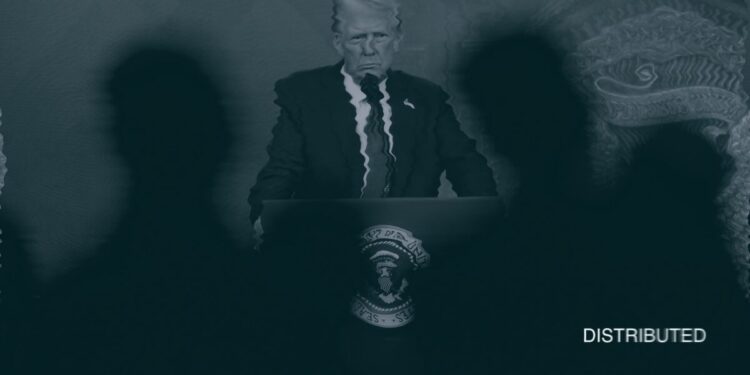US President Donald Trump has placed America’s banking giants into the political spotlight, this time accusing major financial institutions like JPMorgan Chase and Bank of America of discriminating against him and his conservative supporters. Speaking in a recent interview with CNBC, Trump claimed that these banks refused to accept his deposits and even forced him to close his accounts after his presidency. He emphasized that he had millions of dollars ready to deposit, but was allegedly told to move his funds elsewhere within just 20 days.
This accusation comes amid reports that Trump is preparing to issue a new executive order targeting what he calls “politicized or unlawful debanking” practices. According to a draft order reviewed by Reuters, the directive would require financial regulators to investigate whether banks are dropping customers based on political affiliations, a practice President Trump argues has affected many conservatives across the U.S., not just himself. While JPMorgan and Bank of America have not directly responded to these claims, they both have expressed willingness to work with regulators to review current policies. JPMorgan clarified that they do not close accounts for political reasons and even commended the White House for taking on the issue.
President Trump’s criticism underscores a broader concern that has been building over the last few years, whether banks are quietly sidelining individuals or groups due to political or reputational risks. During former President Biden’s administration, regulators encouraged financial institutions to consider reputational damage when deciding whom to bank with. This included heightened scrutiny around high-profile clients like President Donald Trump, especially in light of his ongoing legal battles and controversies. However, in a policy shift announced this June, the Federal Reserve stated that it would stop requiring banks to factor in reputational risk when evaluating customers.
See Related: JPMorgan Faces $155 Million Asset Seizure In Russian Court Ruling
The Equal Credit Opportunity Act
The draft executive order would take this further by instructing regulators to determine whether any banks have violated laws like the Equal Credit Opportunity Act, antitrust rules, or consumer protection laws when discontinuing customer relationships. If violations are found, banks could face penalties, consent decrees, or disciplinary action. The goal, according to industry analysts, is to prevent banks from using vague regulatory concerns as an excuse to deny services. Instead, banks would be expected to rely on standard risk assessments without political bias.
President Trump claims that after being turned away by large institutions, he had to scatter his money across smaller banks, depositing millions in smaller increments because major lenders wouldn’t work with him. He called the situation “crazy” and said it only happened because the big banks had unfairly discriminated against him. Interestingly, JPMorgan still maintains banking relationships with other Trump family members and even services some of his campaign accounts, casting a shadow of complexity over his claims.
From the banks’ perspective, the problem lies not in political discrimination but in what they call “regulatory overreach.” Industry groups like the Bank Policy Institute argue that outdated anti-money laundering laws and inconsistent regulatory guidance leave banks in a difficult position, especially when dealing with politically exposed persons. Financial institutions are hopeful that this new executive attention could also lead to reforms in compliance laws that many view as burdensome and out of date.
As the executive order awaits formal announcement, the banking world is watching closely. If implemented, it could force a major reassessment of internal compliance frameworks and trigger new lawsuits, investigations, or even policy shifts across the financial sector. Meanwhile, smaller banks may see a surge in high-value clients who feel sidelined by Wall Street’s biggest players.
This clash between politics and banking could have far-reaching consequences. If banks are forced to walk a tighter regulatory line when it comes to customer rejection, we might see a rebalancing of how financial services are delivered across ideological lines. On the other hand, stricter compliance requirements could also slow down onboarding processes, increase scrutiny of high-risk clients, and raise costs for banks already operating under intense regulatory pressure. This may further polarize the financial system, with some institutions becoming preferred havens for conservatives, while others lean toward more progressive clientele.



